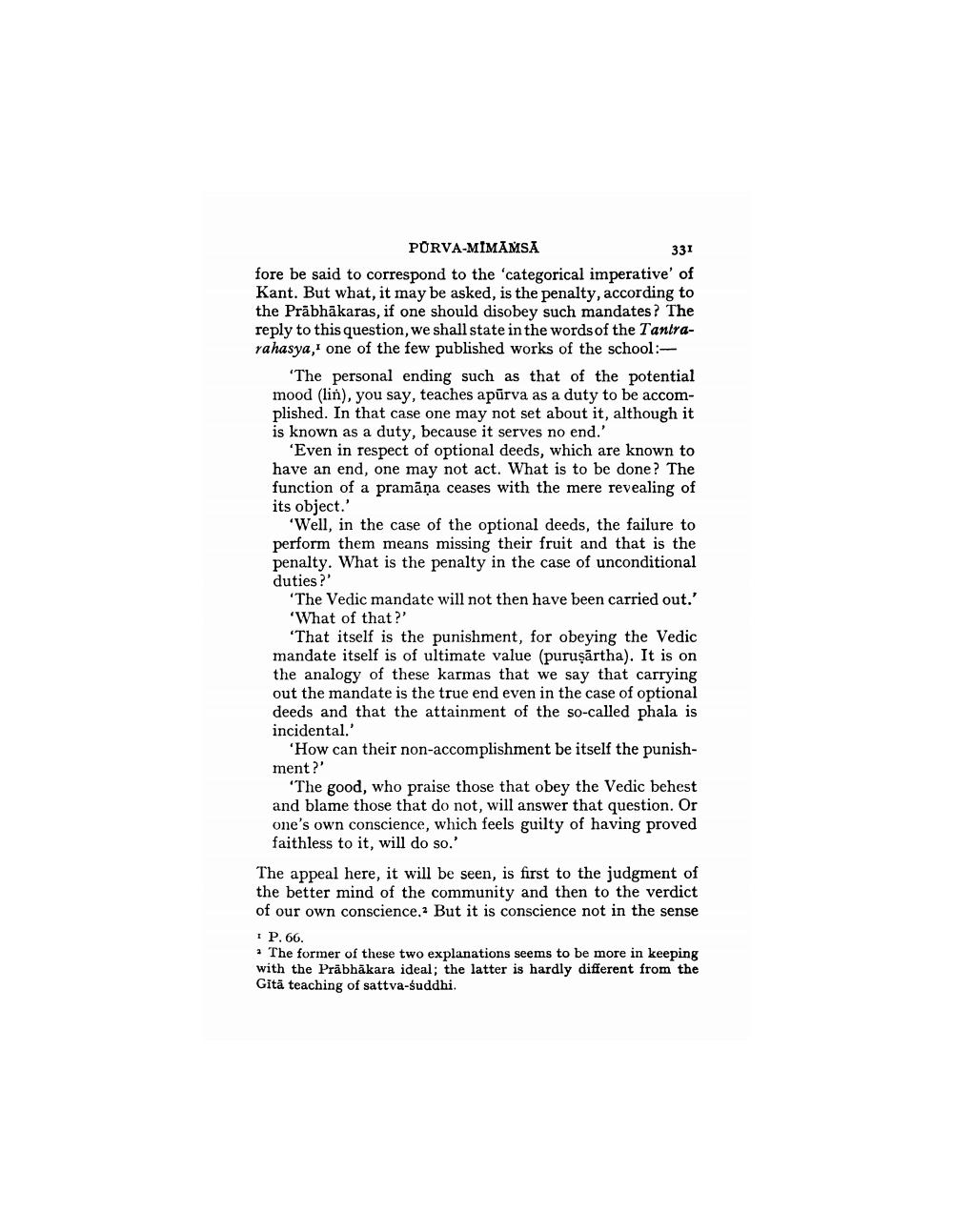________________
PORVA-MIMAMSA
331 fore be said to correspond to the categorical imperative' of Kant. But what, it may be asked, is the penalty, according to the Prābhākaras, if one should disobey such mandates? The reply to this question, we shall state in the words of the Tantrarahasya, one of the few published works of the school
'The personal ending such as that of the potential mood (lin), you say, teaches apūrva as a duty to be accomplished. In that case one may not set about it, although it is known as a duty, because it serves no end.'
'Even in respect of optional deeds, which are known to have an end, one may not act. What is to be done? The function of a pramāņa ceases with the mere revealing of its object.'
"Well, in the case of the optional deeds, the failure to perform them means missing their fruit and that is the penalty. What is the penalty in the case of unconditional duties?'
'The Vedic mandate will not then have been carried out.' 'What of that?'
"That itself is the punishment, for obeying the Vedic mandate itself is of ultimate value (puruşārtha). It is on the analogy of these karmas that we say that carrying out the mandate is the true end even in the case of optional deeds and that the attainment of the so-called phala is incidental.'
'How can their non-accomplishment be itself the punishment?'
'The good, who praise those that obey the Vedic behest and blame those that do not, will answer that question. Or one's own conscience, which feels guilty of having proved
faithless to it, will do so.' The appeal here, it will be seen, is first to the judgment of the better mind of the community and then to the verdict of our own conscience. But it is conscience not in the sense 1 P. 66. · The former of these two explanations seems to be more in keeping with the Präbhākara ideal; the latter is hardly different from the Gītā teaching of sattva-śuddhi.




